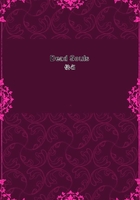
第123章
Chichikov also glanced out of the window, and saw approaching the verandah a brisk, swarthy-complexioned man of about forty, a man clad in a rough cloth jacket and a velveteen cap. Evidently he was one of those who care little for the niceties of dress. With him, bareheaded, there came a couple of men of a somewhat lower station in life, and all three were engaged in an animated discussion. One of the barin's two companions was a plain peasant, and the other (clad in a blue Siberian smock) a travelling factor. The fact that the party halted awhile by the entrance steps made it possible to overhear a portion of their conversation from within.
"This is what you peasants had better do," the barin was saying.
"Purchase your release from your present master. I will lend you the necessary money, and afterwards you can work for me.""No, Constantine Thedorovitch," replied the peasant. "Why should we do that? Remove us just as we are. You will know how to arrange it, for a cleverer gentleman than you is nowhere to be found. The misfortune of us muzhiks is that we cannot protect ourselves properly. The tavern-keepers sell us such liquor that, before a man knows where he is, a glassful of it has eaten a hole through his stomach, and made him feel as though he could drink a pail of water. Yes, it knocks a man over before he can look around. Everywhere temptation lies in wait for the peasant, and he needs to be cunning if he is to get through the world at all. In fact, things seem to be contrived for nothing but to make us peasants lose our wits, even to the tobacco which they sell us. What are folk like ourselves to do, Constantine Thedorovitch? Itell you it is terribly difficult for a muzhik to look after himself.""Listen to me. This is how things are done here. When I take on a serf, I fit him out with a cow and a horse. On the other hand, Idemand of him thereafter more than is demanded of a peasant anywhere else. That is to say, first and foremost I make him work. Whether a peasant be working for himself or for me, never do I let him waste time. I myself toil like a bullock, and I force my peasants to do the same, for experience has taught me that that is the only way to get through life. All the mischief in the world comes through lack of employment. Now, do you go and consider the matter, and talk it over with your mir[8]."[8] Village commune.
"We have done that already, Constantine Thedorovitch, and our elders' opinion is: 'There is no need for further talk. Every peasant belonging to Constantine Thedorovitch is well off, and hasn't to work for nothing. The priests of his village, too, are men of good heart, whereas ours have been taken away, and there is no one to bury us.'""Nevertheless, do you go and talk the matter over again.""We will, barin."
Here the factor who had been walking on the barin's other side put in a word.
"Constantine Thedorovitch," he said, "I beg of you to do as I have requested.""I have told you before," replied the barin, "that I do not care to play the huckster. I am not one of those landowners whom fellows of your sort visit on the very day that the interest on a mortgage is due. Ah, I know your fraternity thoroughly, and know that you keep lists of all who have mortgages to repay. But what is there so clever about that? Any man, if you pinch him sufficiently, will surrender you a mortgage at half-price,--any man, that is to say, except myself, who care nothing for your money. Were a loan of mine to remain out three years, I should never demand a kopeck of interest on it.""Quite so, Constantine Thedorovitch," replied the factor. "But I am asking this of you more for the purpose of establishing us on a business footing than because I desire to win your favour. Prey, therefore, accept this earnest money of three thousand roubles." And the man drew from his breast pocket a dirty roll of bank-notes, which, carelessly receiving, Kostanzhoglo thrust, uncounted, into the back pocket of his overcoat.
"Hm!" thought Chichikov. "For all he cares, the notes might have been a handkerchief."When Kostanzhoglo appeared at closer quarters--that is to say, in the doorway of the drawing-room--he struck Chichikov more than ever with the swarthiness of his complexion, the dishevelment of his black, slightly grizzled locks, the alertness of his eye, and the impression of fiery southern origin which his whole personality diffused. For he was not wholly a Russian, nor could he himself say precisely who his forefathers had been. Yet, inasmuch as he accounted genealogical research no part of the science of estate-management, but a mere superfluity, he looked upon himself as, to all intents and purposes, a native of Russia, and the more so since the Russian language was the only tongue he knew.
Platon presented Chichikov, and the pair exchanged greetings.
"To get rid of my depression, Constantine," continued Platon, "I am thinking of accompanying our guest on a tour through a few of the provinces.""An excellent idea," said Kostanzhoglo. "But precisely whither?" he added, turning hospitably to Chichikov.